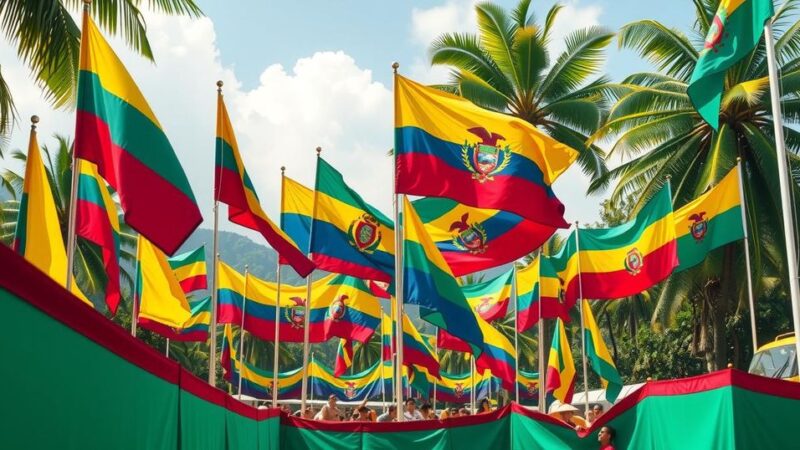Ghana’s new government emphasizes anti-corruption, highlighting previous finance minister’s fugitive status. While historically both parties have faced allegations, the impact of corruption is felt most by ordinary citizens. Effective measures require grassroots actions alongside political initiatives, as showcased by pre-colonial resistance traditions. Recent research indicates a growing perception of corruption among the poor, necessitating community engagement to complement existing government frameworks.
The government of Ghana, led by President John Mahama, swiftly underscored its commitment to combating corruption shortly after taking office. On February 12, 2025, the appointed special prosecutor labeled the former finance minister a “wanted fugitive” for evading questioning regarding alleged financial misconduct, suggesting a staunch stance against corruption. This situation echoes familiar rhetoric wherein the current party blames the opposition for pervasive graft, specifically the New Patriotic Party, which was ousted only months earlier.
Corruption in Ghana is a complex issue that affects ordinary citizens significantly. Throughout three decades of electoral democracy, both major political parties have faced allegations of wrongdoing. Historical accounts reveal a long-standing pattern of misconduct among public and private officials. Historically, Ghanaians have actively challenged corruption, dating back to before British colonial rule, highlighting the persistence of resistance to malpractice.
Drawing from extensive research on Ghana’s coronation history, it becomes apparent that effective anti-corruption measures require grassroots organizational efforts as much as top-down initiatives. The most vulnerable demographics experience the harshest consequences of corrupt practices, underscoring the necessity for community engagement in accountability measures against authority figures.
In pre-colonial Ghana, the Asante Empire strong system of accountability faced challenges through uprisings against monarchs accused of inequity and excesses. Dethronements occurred when leaders disregarded cultural norms, illustrating early forms of societal accountability. Similarly, the Fante coastal communities invented the asafo defense groups, enabling commoners to remove unjust leaders, showcasing active civic responsibility in governance.
Although colonial powers diminished the authority of asafo groups, their legacy influenced post-colonial anti-corruption movements in Ghana. Historical protests during the late 1970s demonstrated a revived spirit of resistance, where demonstrators not only called for accountability from leaders but framed corruption as a systemic issue aggravated by socio-economic disparities. While the Rawlings government initially embraced this unrest, it ultimately aligned with elites, resulting in the dismantling of youth advocacy groups.
Corruption perspectives continued to evolve during Ghana’s multiparty democratic era, although traditional parties remained entangled in systemic corruption. Critics, including political scientist Kwame Ninsin, argue that these parties merely alternate leadership to facilitate personal wealth accumulation. This complicity creates public skepticism regarding anticorruption measures,
which often neglect socio-political intricacies and rely on external assessments.
Research such as Afrobarometer provides a nuanced view of corruption, revealing that a notable percentage of impoverished citizens believe corruption has intensified, contrasting with the more privileged populace’s perceptions. This emphasizes that while high-profile corruption cases may garner attention, the real impact of misconduct lies in the daily realities faced by ordinary citizens.
Ghana has established various laws and institutions to address corruption, emphasizing exposure and prevention through measures such as mandatory asset declarations for officials. Despite improvements in governmental anticorruption responses, bureaucratic resistance and underwhelming commitment hinder progress, prompting activists to call for a more significant role for civic engagement alongside governmental efforts.
In conclusion, addressing corruption in Ghana requires a multi-faceted approach that incorporates both governmental measures and grassroots activism. Historical precedence indicates that organized community resistance plays a vital role in holding leaders accountable. While legislative reforms and institutional frameworks have been established, the effectiveness of these initiatives is contingent upon the active involvement of ordinary citizens, who are most acutely affected by corrupt practices. Continued engagement and advocacy from the populace are essential for fostering genuine accountability and combating graft in the nation.
Original Source: www.inkl.com






